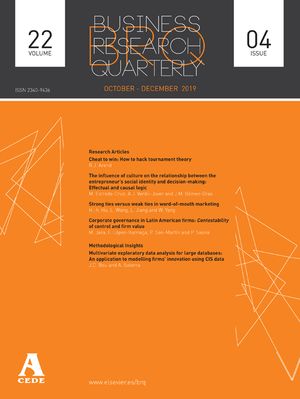El objetivo del presente trabajo estriba en determinar los factores explicativos de la política de dividendos para una muestra de 931 empresas de diferentes entornos institucionales en el período 1996 al 2000. El grado de protección al inversor y la imputación sobre dividendos en cada país son factores institucionales determinantes de la estructura de propiedad y de la política de endeudamiento adoptada que influyen sobre los problemas de gobierno corporativo y, por ende, sobre los dividendos distribuidos. De este modo, planteamos una serie de hipótesis que relacionan estos factores con los dividendos que se contrastan aplicando la metodología de datos panel con efectos dinámicos. Los resultados obtenidos evidencian que el enfoque Law&Finance desde la óptica de la agencia puede proporcionarnos respuestas más precisas y de naturaleza diferente a la controversia en torno a los dividendos.
The objective of this paper consists of determining the explaining factors of dividend policy for a sample of 931 firms from different institutional environments during the period 1996–2000. The investors protection and dividends taxation are instituional aspects that determine the ownership and financial structure and have an influence on corporate governance problems. And so, dividends decission are influenced by these aspects that determine the agency problem of corporate governance. So, we set hypotheses to contrast, using the methodology of GMM stimation of panel data, the relationship among each factor and dividends adopted by firms in each particular legal system. We obtain results that evidence that the Law&Finance perspective from the agency problems allows us to fit more accurate the dividend puzzle into the corporate governance problem.




